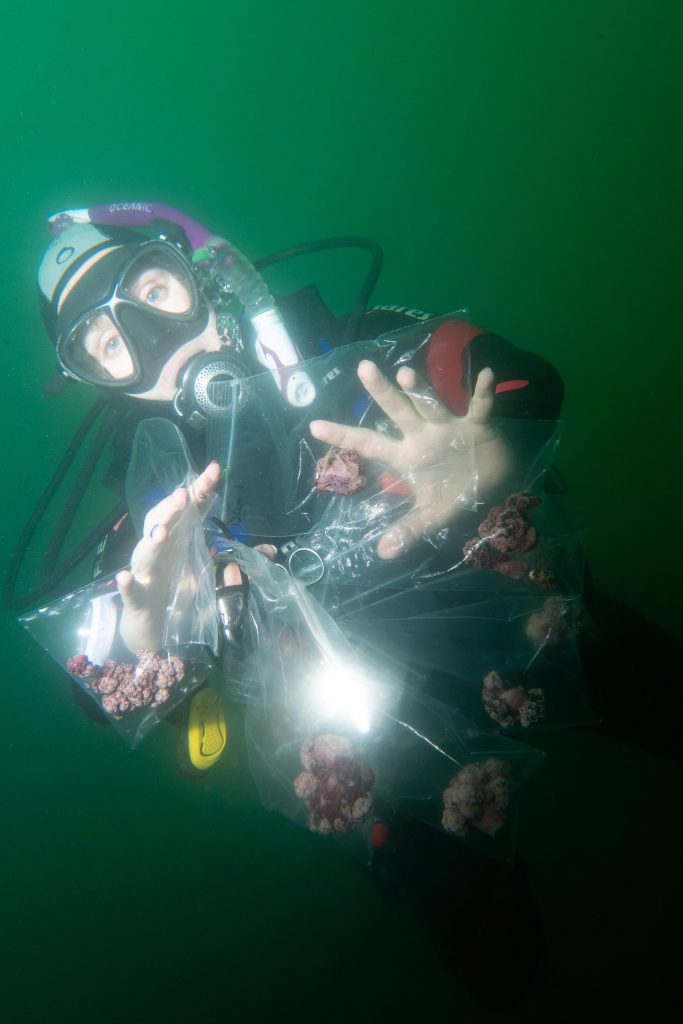By Charlotte Beloe
Being a part of the UNSW Maths and Science Champions Program this year has been an amazingly enriching experience. Having not yet had the opportunity to try out my new skills I was curious about what life after the Champions Program is like. So this week I caught up with UNSW Maths and Science Champions alumnus Rosie Steinberg to find out.

Rosie is currently doing her PhD on soft corals. “I work on the ecology of, threats to, and restoration potential of soft corals”, says Rosie. This involves two different projects: observing the effects of 2019 bleaching events on soft corals and research to inform the restoration of cauliflower corals in Sydney Harbour. If you’ve never seen a soft coral they’re definitely worth a quick Google or Youtube search! Rosie showed me her awesome video background of Xenia sp. pompom corals which definitely made me want to step up my video-conferencing game.
Reflecting on the past year, Rosie has found she has really honed her skills for science communication. “I think knowing some of the resources for science communication that are available through the uni and getting introduced to social and regular media teams was really useful,” Rosie says. “The social media workshop was great, I got back into Twitter after 8 years! I boosted my public image and managed to build a decent SciComm following.”
It doesn’t stop at Twitter – Rosie says she is now more likely to actively engage with the public on social media and in blogs about her own research. “The program got me to think about my work in a broader context. I learned how to write for a wider audience without ‘dumbing my research down’.” It’s a very simple skill that is surprisingly difficult and one that Rosie still finds challenging. She’s quick to highlight its importance, “It’s important to make sure that my research is accessible. My focus is on conservation and at the end of the day I’m not the one out there doing the work in restoration. So if I can’t make my research accessible it’s pretty useless.”

Rosie also says that learning about presentation skills through workshops really boosted her confidence. “My presentation skills are definitely better, as is my general public speaking,” Rosie says. “I’m more comfortable accepting outreach and science communication offers, since I know I now have the skill set.”
It isn’t just skill development that Rosie has found useful; a highlight of the program was the relationships she built with other women. “I really liked the time spent with women from research areas I wouldn’t have met otherwise. Our paths would never have crossed.” Rosie explains, “I got to learn so much, especially what it means to be a woman in STEM.”
When asked what message she has for young women interested in STEM she commented, “Women are just as good as men in any area of STEM and this has been shown over and over.” She mused over her time working in mammalian research where she would have to lift whole animals, even a whole frozen cougar (with a bit of help of course)! “Try everything you are interested in and don’t let anyone shame you out of what you are interested in. Experiment, try things out, you’ll learn a lot about yourself.” Rosie continued. And that’s exactly what she has done over the years.
On a final note Rosie reflected, “Things are just getting better for women in STEM and we’re fighting to make it better. The women before us made it leaps and bounds better for us and we’ll do the same for the next generation.”
Follow Rosie on Twitter.




